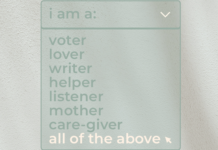In the United States alone, more than 23 million adults sing in groups every week. Why? Because there’s a direct link between music and mood, so much so that there’s a whole branch of psychology devoted to music, appropriately called ‘music therapy.’
Originally, music therapy was developed BY WHOM as a way to help wounded World War II veterans cope with their pain. But the practice of music as a therapeutic activity has been around thousands of years. In the 500s BC, the Greek philosopher Pythagoras believed music was beneficial to the spirit.
But today, you don’t need to know your music theorems or the ancient history of music to appreciate the joys of a sing-along. Nor do you need to be a wounded soldier. While most relevant research in the past has focused on the ways choirs benefit the marginalized or criminal members of society, a new study in Australia looks at how positive the chorus experience can be for just about anybody.
You might not think of yourself as a performer, and in fact the very thought of singing in front of other people may fill you with terrible stage fright, but the study confirmed the benefits of singing with a group across a wide spectrum of positivity: better mood, influx of endorphins, increased feelings of communal value. The researchers work illustrates not just the power of music, but also the power of participation and active involvement.
There’s no excuse: sing along!
I wish you all the best,
Dr. Samantha Boardman






